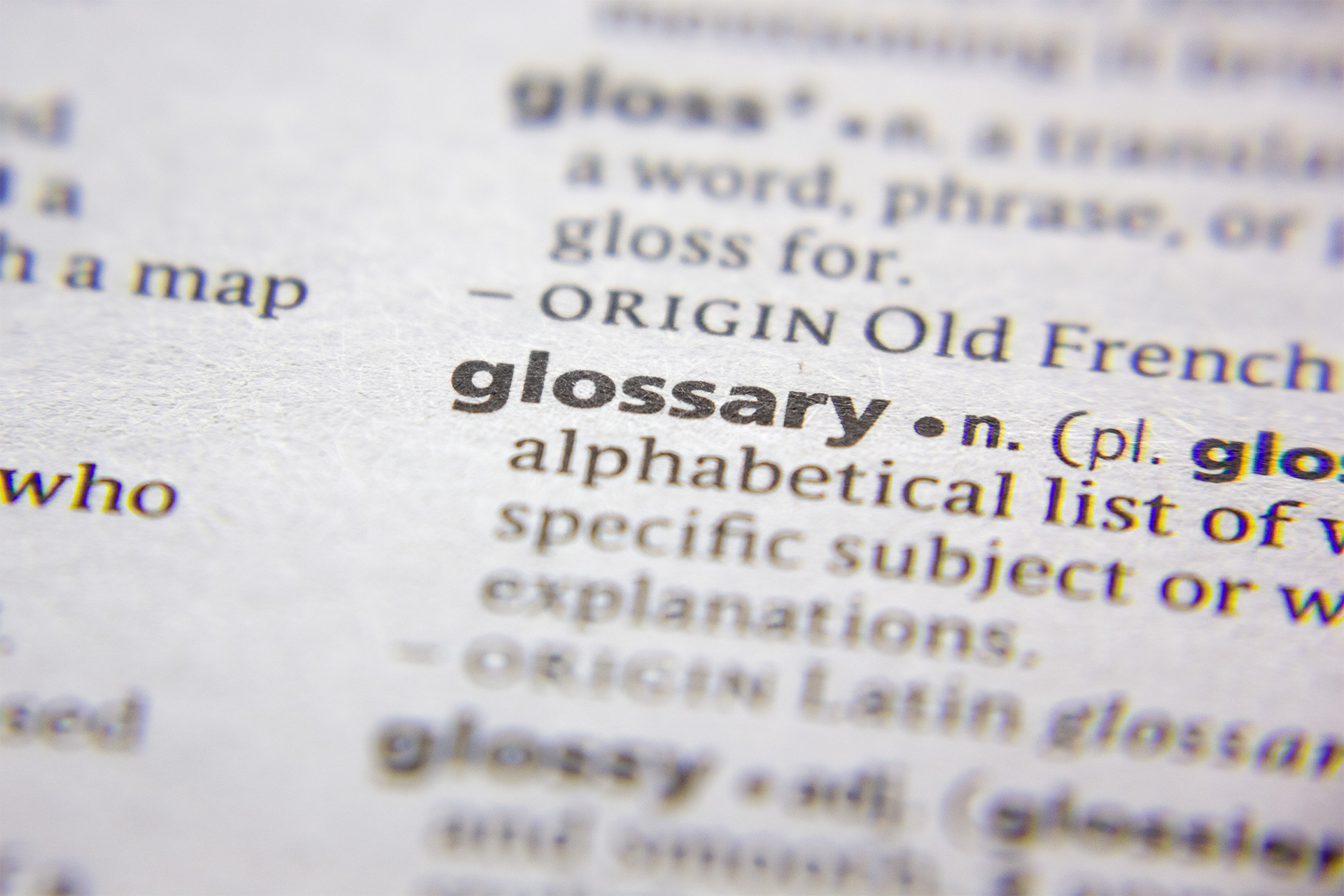Understanding Insurance Terminology
A Guide to the Meanings of Common Insurance Terms

General Insurance Terms
- Actual cash value: This type of coverage pays according to what an item was worth at the time it was damaged-it takes depreciation and wear and tear into account. For example, if you could have sold your couch for about $200 just before it was damaged, that's the actual cash value, even if a similar new couch would cost $1,000.
- Actual replacement cost: This pays the amount it would cost to replace a damaged item with a new one (such as the $1,000 couch above). It does not factor in depreciation or wear and tear.
- Adjuster: A person who works for an insurance company to evaluate losses and settle claims.
- Additional insured: Someone who is not the policyholder, but is still covered by an insurance policy.
- Declarations page: This is what creates a contract between you and the insurance company. It describes who owns the policy, what property is covered and for how much, etc.
- Deductible: The amount you agree to pay out of pocket before your insurance coverage kicks in. For example, if the cost to fix your car is $2,000, but your deductible is $1,000, you would pay $1,000 of the total cost. Typically, a higher deductible means a lower premium.
- Endorsement: This is a change to your insurance policy's coverage, usually made through a special form.
- Exclusion: Something specifically listed in your policy that is not covered by the policy.
- Liability: Your responsibility for injuries or damage to other people or property. You purchase insurance to protect against liability and other risks.
- Loss of use: When damage from an accident or other cause prevents someone from being able to live in their home or drive their car.
- Med Pay (medical payments): This pays for medical expenses for those covered by your policy in the event of an auto accident, regardless of fault. It also covers medical expenses for guests if they are injured on your property, but unless it is a car accident, it usually does not cover injuries someone suffers on their own property.
- Premium: The amount you pay for an insurance policy.
- Subrogation: When an insurance company pays a claim, and then seeks damages from a third party who was responsible for causing the damage or loss. For example, your insurance company might pay for your car to be fixed even though an accident wasn't your fault-and then pursue reimbursement from the person who was at fault.
- Term: The period of time your insurance policy is in effect, usually six or 12 months.
- Umbrella: A policy that provides additional liability coverage. It kicks in after your other insurance policies have reached their coverage limits.
- Underwriting: The evaluation process insurance companies use to determine if they will provide coverage to a customer.
Auto Insurance Terms
- Aftermarket Parts: Vehicle parts made by a different company than the one that manufactured those originally included with the vehicle.
- Bodily Injury Coverage: Covers expenses for physical injuries, such as hospital bills or medical care.
- Collision coverage: This pays for damage to a vehicle caused by you or someone else covered by your policy.
- Comprehensive coverage: Comprehensive insurance coverage is defined as an optional coverage that protects against damage to your vehicle caused by non-collision events that are outside of your control. This includes theft, vandalism, glass and windshield damage, fire, accidents with animals, weather, or other acts of nature. Though often referred to as "comprehensive insurance," comprehensive coverage refers to a specific coverage on an existing policy, not a separate type of insurance. Note that lenders may require you to carry comprehensive when you finance or lease a vehicle.
- PIP (personal injury protection): This pays medical expenses for a policyholder or additional insured, and their passengers, if they are hurt in an auto accident, regardless of fault.
- Uninsured/underinsured motorist (UIM): Uninsured motorist coverage protects you if you're hit by a driver who has no auto insurance. Underinsured motorist coverage, which is usually offered alongside uninsured motorist coverage, protects you if you're hit by a driver who doesn't have enough coverage to pay for the damages or injuries they caused. Both coverages are mandatory in many states and highly recommended for all drivers. If you're a victim of a hit-and-run accident, you can file a claim against your uninsured motorist coverage.
Homeowners Insurance Terms
- Additional living expenses: Coverage for expenses above your usual living expenses, such as if you have to stay in a hotel because you can't live in your damaged home.
- Catastrophe: A disaster, such as a hurricane or tornado, that impacts a specific area and results in significant damage.
- Flood insurance: Typically, standard homeowners policies do not provide coverage for flooding-it must be purchased separately.
- Home contents: These are the things inside your house that aren't fixed to the structure, such as your furniture, appliances, etc.
- Peril: A specifically defined risk, such as hail, flooding, wind, etc.
- Scheduled personal property: Separate coverage for high-value items, such as expensive jewelry, that exceed the limits of your policy or are otherwise excluded.
You might also like
Local Service. Competitive Rates.
Find out how much you can save!
Location
4724 S Union Ave, Tulsa, OK 74107
Call
(918) 446-4421
918-446-4421
© 2024
All Rights Reserved | Charles G. Harris Insurance Agency, Inc. | Please read our Privacy Statement




